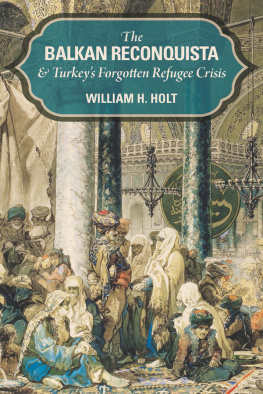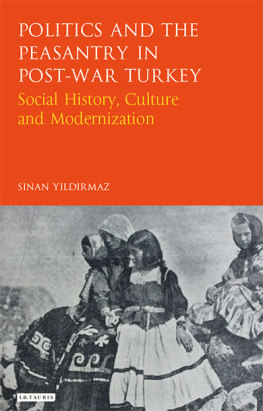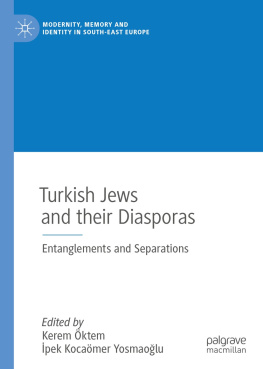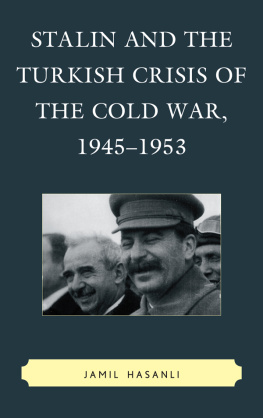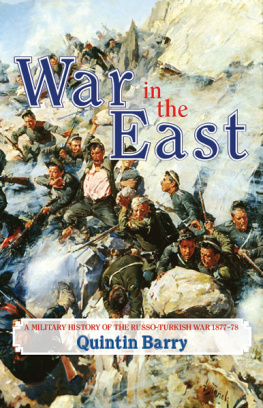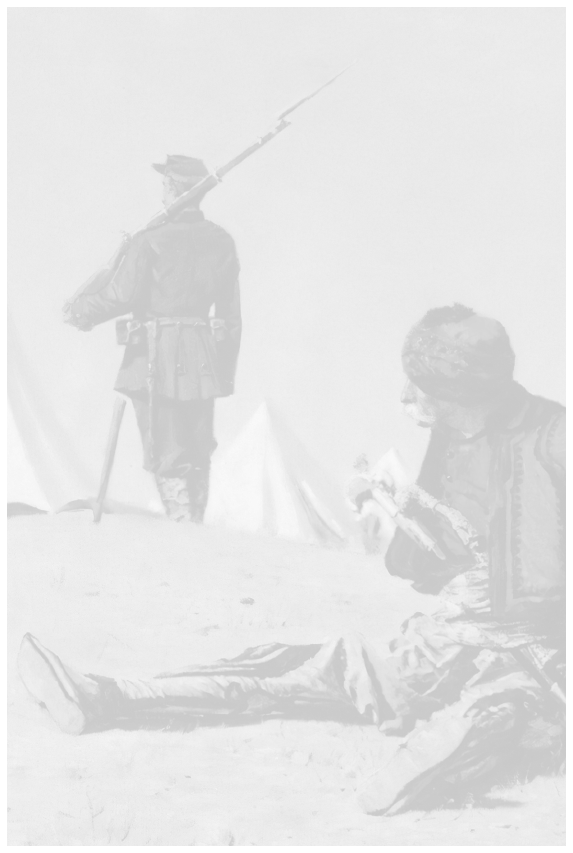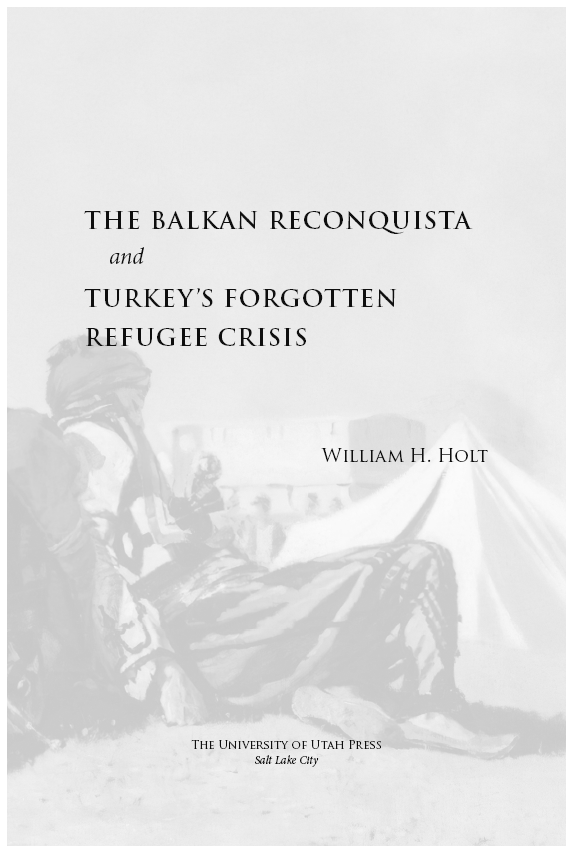The process of creating this work turned out to be fascinating, frustrating, and ultimately very rewarding. Many people throughout this project have assisted me. I must acknowledge the special help and direction offered by Dr. M. Hakan Yavuz, who gave me the initial nudge in the direction of ethnic violence in the Balkans at the end of the Ottoman Empire for a research topic. Throughout the research I have met with several individuals who demonstrated by their generous willingness to share information and sources that for them scholarship is more than a profession: it is a vocation. I specifically would like to thank Sinan Kuneralp, Rossitsa Gradeva, and Hakan Yavuz, whose willingness to put me in contact with the right people, to help me obtain documents, and to offer suggestions and critiques was an indispensable part of the project. I am grateful to Alexandre Toumarkine and Nedim pek for granting me interviews and suggesting directions for research. I would also like to thank Erika Daines, Peter Daniels, John Francis, Gary Gillespie, Kathy Lewis, Robert Lorimer, Carolina Orphanidou, Tetsuya Sahara, Pam Sezgin, Peter von Sivers, Kaye Summers, Fabio Vicini, and David Wilson for their suggestions, proofreading, and encouragement and Erika Daines again for her help with German texts. All translations from foreign-language sources are mine unless otherwise noted. Finally, I am very grateful for the financial support offered to me by the Turkish Coalition of America through its generous grant to the Turkish Studies Project at the University of Utah. As with any such work, ultimate responsibility lies with me.
INTRODUCTION
While only a small portion of Turkey today lies in Europe, this small piece of land is like the tip of an iceberga visible Muslim tip with a much bigger part submerged in the waters of Lethe. Turkey has roots in Europe that stretch deep in the Balkan Peninsula. Muslims in their multifarious Balkan forms herded their flocks through Balkan hills, planted rice on the banks of the blue Danube, and fished the waters of the western Black Sea. Centuries passed, and those hills, mountains, rivers, and sea were as much a part of the Ottoman Empire as the plateaus, hills, and rivulets of Anatolia.
But suddenly it ended. It ended with Muslims at the bottom of mass graves and immolated in mosques. It ended with tearful masses slowly moving through thick snow or exposed to fatal cold and tightly packed in open-air train cattle wagons destined for Istanbul. It ended with homeless Balkan Muslims huddled in Istanbuls celebrated mosques. And it ended with oblivion and forgetting: today we might lament, If only those walls could speak! Sorrow and suffering were followed by an abrupt amnesia. In addition to the hows and whys that would lead us to understand the causes and events of the massacres and migrations of Muslims from Bulgaria to Turkey in 18771878, it is no less important to ask why such events have been broadly dismissed from public memory. Many other societies seemingly hold fast to their memories, nurture them, and publicize them, even to the point of becoming in thrall to them, nurtured by them, and known for them.
One gray autumn day in Paris I was walking along a street in the le de la Cit when a banal plaque on the wall of a building crossed my line of vision and caught my attention:
Upon the occasion of the 60th anniversary of the liberation of Paris,
Monsieur Jacques Chirac
President of the Republic
Unveiled this commemorative plaque
August 25, 2004
The names of the prime minister, minister of the interior, mayor of Paris, and prefect of the police followed. What I found so curious about the plaque, which was for the most part rather unobtrusive, was that that it was a commemoration of a commemoration. Another city marker had already been standing just below it to explain the importance of that particular spot on that Parisian street. It was bumptious and redundantabsurdly redundant, in fact. Yet Paris is a city heavy with history, and this is literally true: all the bronze cast and marble chiseled for the numerous plaques, statues, and monuments throughout the city that unflinchingly remind passersby of events and figures from the citys past must certainly weigh tons!
It is almost impossible to go anywhere in the City of Lights without coming across some immortalization of a historic event or person. Commemorating a commemoration seemed superfluous to me, but the plaque also offers a good illustration of a state engaged in its own history making, even to the point of excess. A physical monuments primary function is more than aestheticit is mnemonic. Nonetheless, the effort to monumentalize, to memorialize, and to commemorate, whether successful or not, at the very least is revealing in regard to the wishes and choices of a community, a nation, or a state to portray itself through its past.
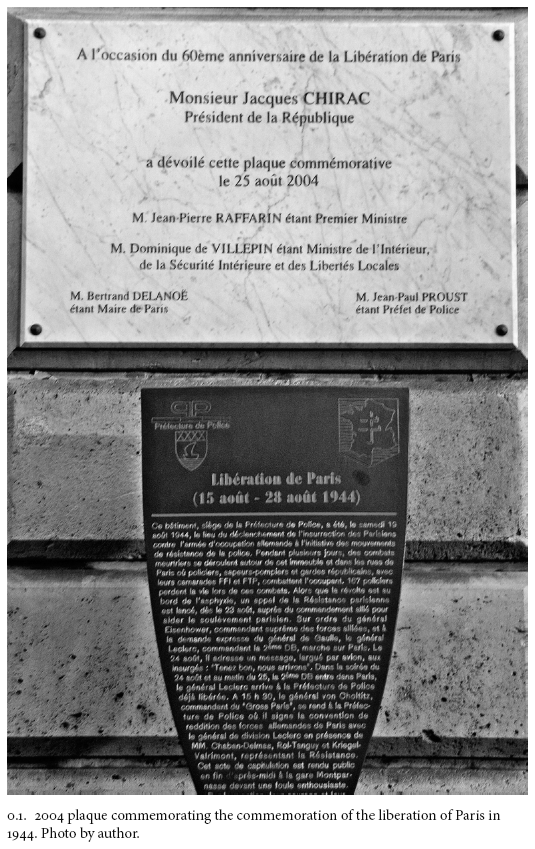
But something else about the plaque was telling when I compared the ubiquity of such monuments in Paris to their relative scarcity in Istanbula city of no short historical pedigree. Co-capital of the Roman Empire, capital of the Byzantine Empire, its successor in the east, and the Ottoman Empire, its eventual usurper, Istanbul (formerly known as Constantinople) has witnessed more than its fair share of momentous yet unmonumentalized events. Despite all the old edifices, someone not knowing any better and focusing solely on commemorative monuments might get the impression that the city is somehow young, with few of the heroes and events that so abound and redound in the French capital. Sure, statues of Mustafa Kemal Atatrk are in no short supply, but, besides that, the best bet for anyone really wanting to see the human form in bronze or marble would be to buy a ticket to the Istanbul Archaeology Museum tucked away in the grounds near Topkap Palace, where Hellenic antiquaries proliferate. Otherwise, plaques and monuments, which tell passersby lapidarily and unabashedly what moment from the past they were built to echo, are not nearly as ubiquitous as in Paris.

